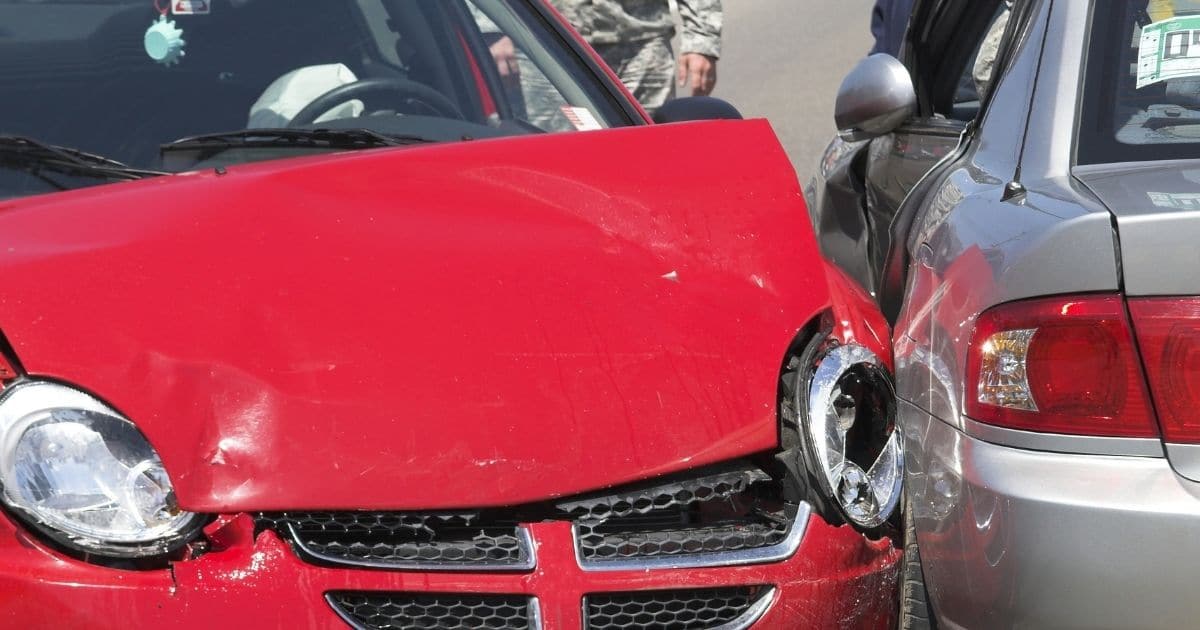An average of six million car accidents occur every year in the United States, according to the Centers for Disease Control and Prevention (CDC). Most people who have been involved in a serious car wreck can agree that it is a traumatic experience. It is normal to be in a state of shock immediately after a serious car accident.
Being prepared for a car accident will not prevent it, but it can offer some peace of mind should a crash happen. Every driver should have an emergency car crash kit on board with supplies to assist passengers and remain safe until help arrives. An emergency kit does not have to be complicated or costly. Once complete, it can be stored in the trunk until it is needed.
Every car accident crash kit should contain:
- First-aid supplies
- Bottled water
- Flashlight and extra batteries
- Flares or reflective triangles
- Hand and foot warmers
- Mobile phone charger
- Non-perishable food
- Pen and paper
- Ponchos
- Warm blankets
- Window punch tool
Paperwork Should be Easy to Find
In addition to these emergency supplies, identification documents should also be readily available, including a driver’s license, vehicle registration, and insurance. Keep documents in the glove compartment or center console to make it easy for police and first responders to find them.
What Should I Do After a Collision?
It is important to remember what to do after a car accident. The aftermath of an accident can be chaotic, and it is easy to panic. However, knowing what steps to take after an accident will help occupants remain calm and better assist anyone in need.
Look for Injuries
After the impact, wait for the vehicle to come to a complete stop. Assess everyone at the scene for car accident injuries. Never move anyone who may be hurt, however. Internal injuries can be serious but are not always immediately obvious. Moving an injured person can worsen their condition.
If the vehicle is in danger of being hit by oncoming cars and it is working, pull it over to the shoulder or the median and out of the flow traffic. Only move the car if leaving it at the crash spot poses a risk to others. Doing so can alter the accident scene and disrupt important evidence.
Call for Help
Call 9-1-1 for assistance. Tell the dispatcher the location, and tell them how many people and vehicles are involved and if anyone is hurt. This helps the dispatcher send the appropriate help. Remain at the scene while waiting for first responders. Utilize blankets, water, and other emergency crash kit supplies as needed.
File a Police Report
Provide identification, registration, and proof of insurance to the police officer. Explain exactly what happened in the moments leading up to and during the accident. If extenuating factors played a role in the crash, mention them.
For example, if the other driver appeared to be looking down at their phone before veering out of their lane and colliding with another vehicle, tell the police. These details help police determine who is at fault, which can impact the insurance claim and help the injured victim recover compensation from the at-fault driver.
Get Medical Care
Anyone who is severely injured at the scene will likely go right to the emergency room. Others may have some aches and pains but do not need immediate medical assistance. Still, even if serious injuries are not apparent, it is always a wise idea to get checked out by a doctor.
Delayed injuries are common with auto accidents. If an injury is left untreated, it can worsen and become harder to treat and cause more serious health complications over time.
What are Common Delayed Symptoms After a Car Wreck?
Delayed symptoms are aches, pains, and other issues that develop hours, days, and even weeks after a physical trauma to the body. When something traumatic happens, like a serious auto collision, adrenaline kicks in and can mask sensations of pain. Crash victims can walk away seemingly fine but really have serious injuries.
The most common delayed conditions include:
Abdominal Pain: Pain with or without bruising, dizziness, and fainting could all signal internal bleeding, a potentially life-threating condition. Trauma to this part of the body often happens when occupants strike the steering wheel or dash, especially if they are not wearing seat belts.
Back Pain: Numbness, tingling, pain, and stiffness can indicate damage to the nerves, vertebrae, muscles, and joints of the back. Without medical intervention, severe back injuries can leave accident victims with limited mobility and chronic pain.
Headaches: Head pain is indicative of a host of serious conditions, including blood clots, concussions, and traumatic brain injuries (TBIs). Always get headaches checked out by a doctor to rule out brain damage and other serious brain injuries.
Mood Changes: A catastrophic accident of any sort is often traumatic for the survivors who may experience long-term nightmares, anxiety, and sleep problems that interfere with everyday activities and the enjoyment of life.
Neck and Shoulder Pain: Whiplash is a common car accident injury, caused when the head and neck are suddenly jolted back and forth. Passengers are likely to feel some neck and shoulder pain hours and days after the impact of a collision.
Numbness: Spinal nerve damage can manifest as numbness or tingling or lack of sensation in the arms and hands, as can whiplash associated disorder, which is a term for the wide-range of conditions related to a sudden acceleration-deceleration motion.
What Evidence Should I Gather?
A lawyer uses accident evidence to build their case and prove how and why the crash occurred. Important car accident evidence includes:
- Police report
- Auto repair estimates and bills
- Photographs of the accident scene
- Eyewitness accounts
- Medical diagnosis
- Bills for medical care
- Driver toxicology reports
- Statements verifying lost wages
- Footage from dash cameras, traffic cameras, and security cameras
When one is unsure about whether or not a bill, email, or letter is relevant to a personal injury claim, always run it by a lawyer.
Why Should I Contact a Lawyer?
One common mistake is saying too much to the insurance company. Most lawyers recommend consulting them first before reaching out to the insurance agent. That is because most auto insurance companies are motivated to pay out as little as possible after an accident. Often, they make an early settlement offer to the other driver that may be below the potential compensation amount.
Before signing off on any insurance settlement, talk with a lawyer to ensure it makes sense both legally and financially. In fact, forward any communication from the other party, their insurance company, or their lawyer directly to the firm handling the accident claim. With effective legal representation, it may be possible to recover additional funds and ensure every expense is covered.
Can I File a Personal Injury Lawsuit?
In Virginia, injured individuals can sue the at-fault party. However, in Virginia, it is more challenging to prove a car accident claim than most other states because of the contributory negligence rule. Contributory negligence means a victim cannot recover any damages if their actions contributed to the accident in any way, even one percent. That is why it is critical to work with a lawyer and preserve all evidence related to the crash.
Virginia Beach Car Accident Lawyers Advocate on Behalf of Personal Injury Clients
It is important to have a car crash emergency kit in case a collision or another event happens. If you were recently involved in a collision and need legal assistance, a Virginia Beach car accident lawyer can help. At East Coast Trial Lawyers, we work tirelessly to protect the rights of injured car accident victims. Call us at 757-352-2237 or contact us online for a free consultation. Based in Virginia Beach, Virginia, we serve clients throughout Chesapeake, Eastern Shore, Hampton, Newport News, Norfolk, Portsmouth, and Suffolk, Virginia, as well as North Carolina and nationwide.


